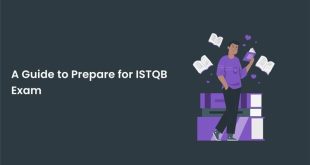If you’re considering pursuing a degree in reading education, you’ll be happy to know that there are plenty of options. From online courses to master’s degree programs, you’ll be able to find what you need to start your career. And if you’re already a teacher, you’ll be able to ensure you get the training you need.
M.A.Ed. vs. Ed.S.
There are a few different degrees for educators. They include the Master of Arts in Teaching, the Educational Specialist, the Doctor of Education, and the M.Ed. Choosing the right one is a matter of individual preference and needs. MAT is a practical degree that teaches teachers how to teach and increase their knowledge of the teaching field. It also gives them a better understanding of the way students learn. However, MAT is not necessarily the best option for every teacher. The EdS, on the other hand, is a more comprehensive degree. It is a post-master degree and is a great choice for active educators who want to get ahead. It is often the first step toward obtaining a teaching license. The EdS is a more focused and less costly degree. For example, you may be able to finish the program in as little as a year. Alternatively, you might be able to get the degree with the credit you already have from a master’s program. You might also be able to qualify for special funding opportunities that only an EdS holder could claim.
Curriculum Requirements
If you’re looking to further your career in education, an Ed.S in a Reading degree program can provide you with the education and skills you need. This professional development degree prepares you to become a reading specialist, classroom teacher leader, literacy coach or supervisor. You can choose a concentration in Literacy or Language and Literacy Education. The online program offers you the same low tuition as students at universities throughout the U.S. It features an academic core based on research and best practices for educating today’s learners. In addition to coursework, you’ll benefit from access to resources, professional support, and ongoing community engagement. You’ll take courses on theory and assessment, program design, and the role of literacy in the educational environment. Your coursework will include a focus on literacy and critical thinking.
You’ll also receive instruction in instructional planning for second language learners, as well as the development of dyslexic learners. Students will also have opportunities to collaborate with teachers and school leaders to develop a Reading Specialist endorsement.
School-Wide And District-Level Literacy Leadership Roles
Reading education leadership involves the creation of a systemic, supportive curriculum that supports students at all levels. It also provides strategies and solutions to help close achievement gaps. A well-trained leader can facilitate the implementation of this kind of systematic, student-centered approach in schools. One of the most important aspects of this kind of leadership is the development of a literacy vision, which guides the school and its staff. For instance, a superintendent might lead a district’s Reading initiative, directing the staff toward an approach designed to provide access to literature and writing and improve the performance of disadvantaged students. Another possible role is the literacy coach position, which a teacher or a principal can provide. This can play a valuable role, especially in PK-6 schools, where children are learning about Reading and writing.
Online Options
If you are interested in becoming an education specialist in Reading, there are several ways you can do it. Some schools offer entirely online programs, while others require students to complete internships. The best option for you depends on your needs. The Ed.S. in reading and literacy online program is designed to prepare educators for the most effective practices in literacy and assessment. This program is perfect for teachers, department chairs, and administrators. It is geared towards K-12 teachers but also includes options for those who want to specialize in teaching adults. You can study reading research, instructional strategies, and effective assessment programs. In addition, you will have the opportunity to participate in two Reading practicum experiences. For more information, check out the program’s website.
 Pagalmusiq.com Popular News Update Website | Pagalmusiq.com
Pagalmusiq.com Popular News Update Website | Pagalmusiq.com




